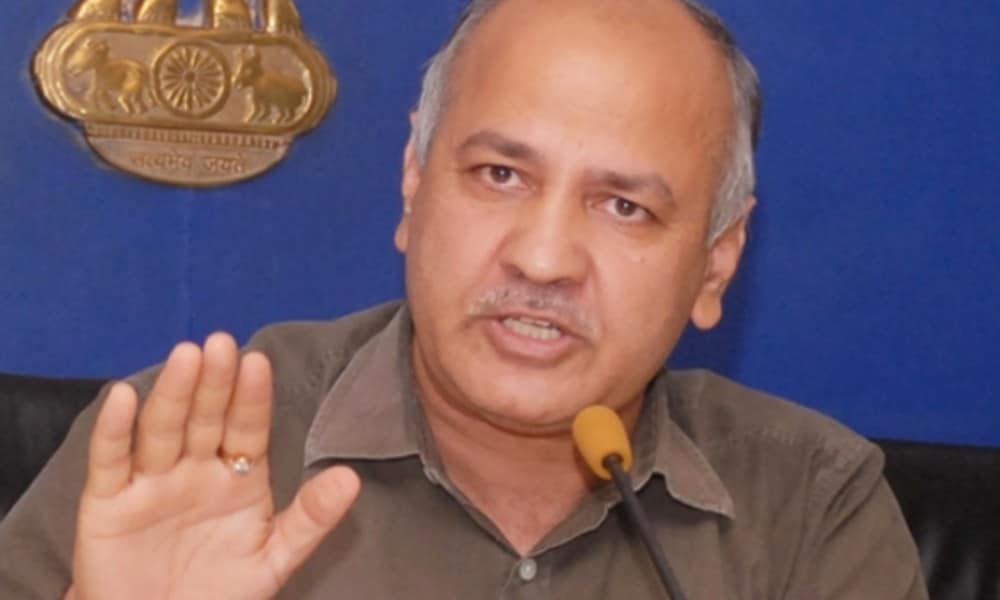With schools and colleges being indefinitely closed due to the COVID-19 crisis, India’s edutech sector is witnessing unprecedented boom. Students and even working professionals from across the country are logging into online education platforms to fill the current vacuum.
This not surprisingly has resulted in impressive growth of free as well as paid subscriptions for the edutech platforms, more so for big platforms like Byju’s, Vedantu and Toppr. These highly funded players have reported manifold increase in their subscriptions since nationwide lockdown was clamped in March.

However, Delhi’s Deputy Chief Minister & Education Minister Manish Sisodia on Tuesday took sort of a jibe on India’s online education sector. Speaking to parents on the sidelines of Chirag Enclave, Sisodia said that online education is not a substitute for school education.
“The kind of exposure and growth that a child gets while coming to a school cannot be compensated through an online medium,” Sisodia said. Although Delhi’s deputy CM did add “online education and semi-education is need of the hour” he equally maintained that the current situation (learning via online education” is not adequate for Children’s development.”
Well, Techpluto thought of getting response from analysts who are closely associated with India’s online education and edutech companies about Manish Sisodia’s comment on the online education. We wanted to find out whether Sisodia’s opinion that online education can only play a helping hand to the traditional school system finds resonance with the online education industry. We reached out to many analysts and companies including Byju’s, Vedantu and Topprs.
While Byju’s, Vedantu and Toppr did not respond to our queries, quite a few did revert back to us with a detailed response. The most prominent being Achin Bhattacharyya, Founder & CEO Notebook and Aniruddha Malpani, the celebrated angel investor who was recently in the news after his LinkedIn account got permanently banned following his controversial LinkedIn posts against Byju’s.
Bhattacharyya especially gave a detailed response over this matter. Here is what he told Techpluto.
“Education is a much more wilder concept than academic prowess and also includes the holistic development of a child. School are miniature versions of our society and thus schooling helps in developing and nurturing many important qualities like socializing sports, group activities, caring, sharing and a broader understanding of the different type of people around us and their individual dreams, aspirations and challenges. Thus I completely agree that schooling is irreplaceable and the role of schools and teachers will always be very important in a child’s overall development.”
“Having said that there are various practical challenges around the world in terms of being able to provide equal opportunity to all students who come to school from different socio-economic strata of the society and also reside in different parts of the country, which also include remote inaccessible areas.”
“in a country as diverse and large as India, the only way to ensure uniform access to best in class education for everyone is by building centralized quality content, storage in cloud and delivery through handheld devices that are connected to the internet.”
“ therefore online education is not an option it is the only solution which can ensure equal opportunity and 24/7 unhindered anywhere anytime access.”
He concluded “Thus an ideal mix of physical schooling and online education is the best way forward in the future. This gradual was anyways happening, the current pandemic has acted as a catalyst and expedited the process. While deliberating on online education we need to understand that the basics of education will never change, the technology is only an enabler that can help a great teacher step out of his 40 student classroom and reach out to a virtual class of millions of students who may be tremendously benefitted by his teaching. ”
Malpani also pitched for a hybrid model but the one where traditional schools and colleges have a limited role to play.
“My view is that school education itself is completely broken. What we really need to do is focus on allowing students to become self learners, so they can learn for themselves at home. This can be done using blended models where some of the content is delivered digitally, and some of it through real life interactions which students and parents and neighbours can create for themselves, without having to be dependent on an educational institution or a school or a board,” Malpani said.
“Maybe this sounds very Utopian but I think this is the path for the future. Students can display their credentials and competence online for themselves, rather than have to depend on a certificate or diploma which really means nothing,” he further added.

